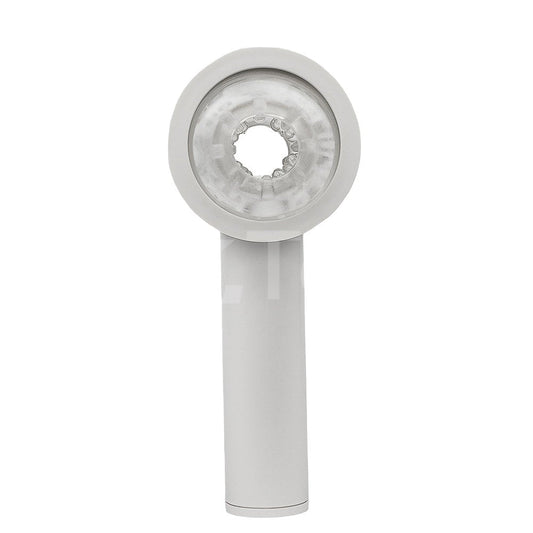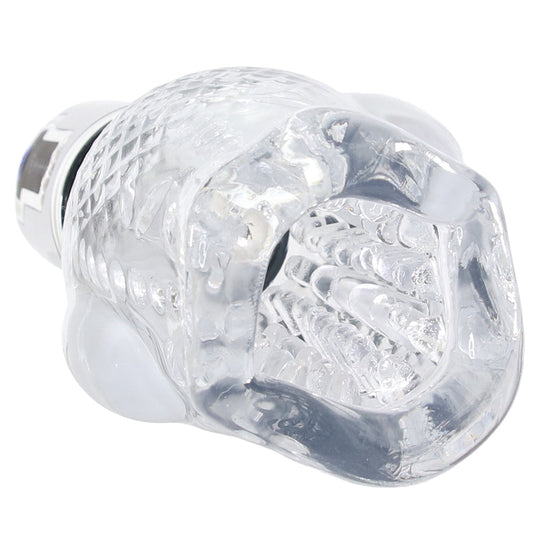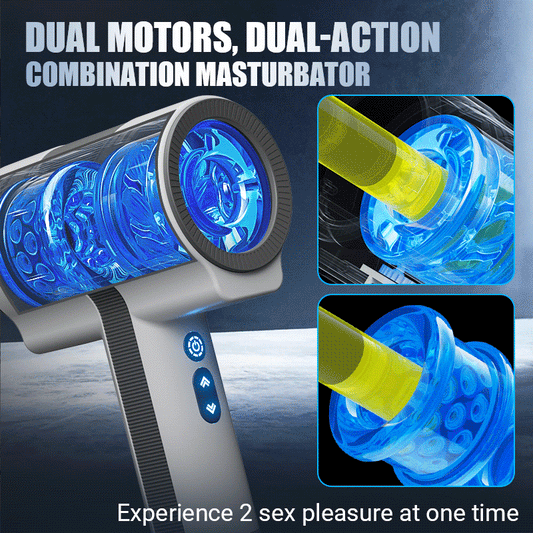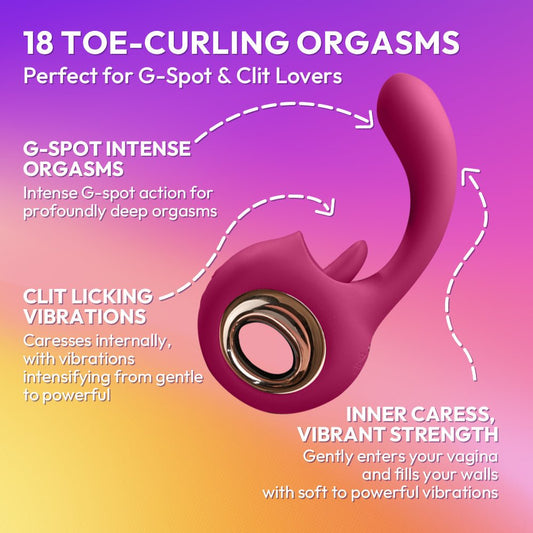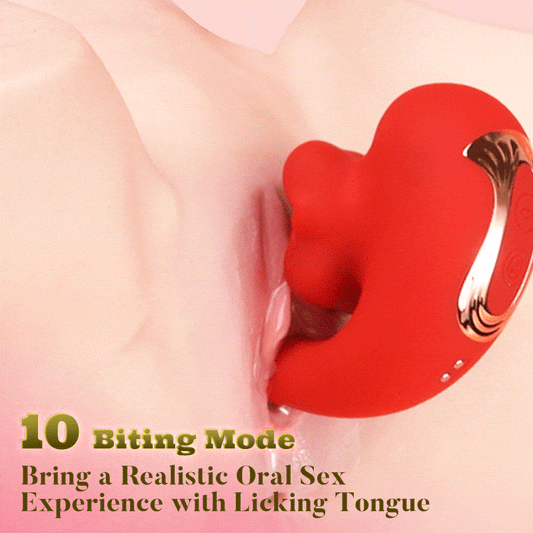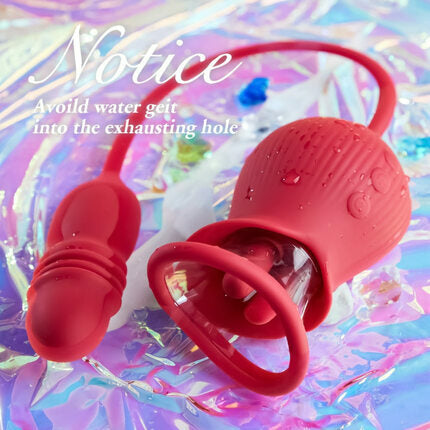Despite their being old tales of causing infertility, sexual frenzy or blindness, self-pleasure in and of itself does not cause infertility.
But this would not be an article if we ended just there. When using sex toys for internal or external pleasure, so far there has been no direct link between using sex toys and infertility. However, there is more to reproductive safety than just using sex toys. We also have to consider the materials with which the sex toy is made. If made with unsafe materials, this is where the question of infertility can arise.
According to the Sex Toy Collective, sex educational content and various studies, dangerous materials and chemicals in sex toys can cause rashes, burns, and allergic and bacterial infections. In serious cases, unsafe materials could also cause asthma, type II diabetes and hormone problems.
Online and by various well-known retailers, you will see discussions, discourse and pledges of using body-safe materials to make sex toys, to ensure a safe and fully pleasurable experience for their customers. Certain materials used in the past we have now learned can cause various health issues.
WHAT IS SEX TOY MADE OF?
Body-safe materials are absolutely paramount for sex toys. Since we're getting up close and personal with these toys, both on the genitals and inside the vagina or anus etc. it's imperative to know that what our sex toys are made of, is safe. Dangerous chemicals and materials in sex toys can and have caused health issues, controversies and even calls for government investigations.
In 2011, Germany's Green Party demanded an investigation into the use of phthalates and other chemicals used to soften plastics in sex toys. According to Psychology Today, the United States FDA lists phthalates as a probable human carcinogen (causes cancer). Phthalates, according to some studies, have shown some evidence of reducing sperm production, along with possibly affecting infant genital development.
STIs & SAFE SEX
While sex toys on their own don't cause STIs, sharing them unsafely can. The unsafe sharing of sex toys can also mean yeast infections and UTIs can be spread between partners. For example, Chlamydia, an STI (sexually transmitted infection) can cause Pelvic Inflammatory Disease (PID) in women, which can cause infertility and increased risk of ectopic pregnancy, along with other health issues.
If you or your partner, casual or committed, have not yet been tested, always use condoms for intercourse and if sharing sex toys. Change the condom between each partner in cases of threesomes or more, and always clean/sterilise your toys before and after each use. If you feel unsure or that it's risky anyway, keep using your toys to just yourself.
Make sure your sex toy is safe to use with condoms. Most are, but it is always best to double-check. If you are unsure, most companies have an FAQ section or customer service department to get in touch with. Even if this toy gives you the most mind-shattering orgasms of your life, safety is your first priority.
Sterilising your toys is also important, if possible. If your toys cannot be properly sterilised, I wouldn't recommend using them with anyone else other than yourself. Cleaning your toys with a specialised sex toy cleaner. Most sex toy retailers stock them. Also, most sex toys come with instruction leaflets that contain cleaning instructions. These instructions may vary depending on the toy.
WHAT TO AVOID & SAFER ALTERNATIVES
A few materials that people are advised to avoid are:
- Jelly
- Sil-a-gel/Gel
- PVC - PVC needs to be softened to make sex toys, which often involved phthalates.
- Phthalates.
- Polystyrene.
- Anal toys that do not have a flared base.
Instead, materials that are generally considered safer are:
- Medical grade/Body-safe silicone - This is one of the most common materials used to make sex toys by reputable retailers. This is also my personal go-to for sex toys. It can vary in flexibility and firmness, is easy to clean and if taken care of properly, can last years.
- Glass - Glass toys can provide different sensations in comparison to silicone. They are smooth, can be used in safe temperature play and can be easily cleaned and sterilised. However, with it being glass, it is not flexible and can be prone to chipping/breaking if dropped.
- Metal - 100% stainless steel is recommended. They are easy to clean and sterilise, can be used in safe temperature play and last long.
- Treated wood - Wood sex toys may sound primitive, however, there is a market for them. Waterproof, non-porous, phthalate-free coatings can be used to treat the wood and make it safer for use as a sex toy.
- Ceramic - Ceramic is non-porous, smooth and easy to clean. However, like glass, can be prone to breaking or chips if dropped.
The Sex Toy Collective does a thorough look-in at different materials found in sex toys, both safe and unsafe. Overall, when it comes to safe sex toys, it's always best to do your research into the toy's materials and the company selling them. If in any doubt, don't use or buy.
WHAT ELSE TO LOOK OUT FOR
PRICE POINT – If toys are very cheap, chances are they are made of poor-quality plastics.
LACK OF SAFETY INSTRUCTIONS - Sex toys always come with an instructional leaflet. This will contain how to use it, charge it/what batteries are used, how to clean it and other safety instructions. If your sex toy does not have this upon purchase, do not use it.
BUY FROM REPUTABLE COMPANIES - Buy from companies you can trust. Companies that are sex-positive, are transparent about what's in their sex toys, have good reviews with users and are made with safe materials. Most companies have a customer service contact, so if you're unsure about anything, get in touch with the company.
CE MARKERS - In the European Union, there are specific regulations that have to be met before a product (in this case, a sex toy) is marked safe for use. Products that meet these regulations in accordance with EU law, will have a CE marker on their packaging. If you've had sex education in the UK or EU, you'll be strongly advised to use condoms with a CE marker, as they have met the testing and safety requirements. If you live in these areas, see if your sex toy comes with this marker.
FOR VAGINAL/ANAL USE ONLY - Some sex toys will state that they are for vaginal or anal use only i.e. prostate massagers. Safety warnings are there to protect you. So if a product says it's for only certain parts of the body, keep to that part only.
IN CONCLUSION
In conclusion, while sex toys as a whole may not cause infertility, it's materials in which sex toys can be made, that can cause health issues, if they are unsafe. Also, sex toys, if used unsafely with partners, can act as a conduit to spread infection. So, the main thing to draw away from this is safety. Do your research, use condoms, clean your toys, and always play safely.




